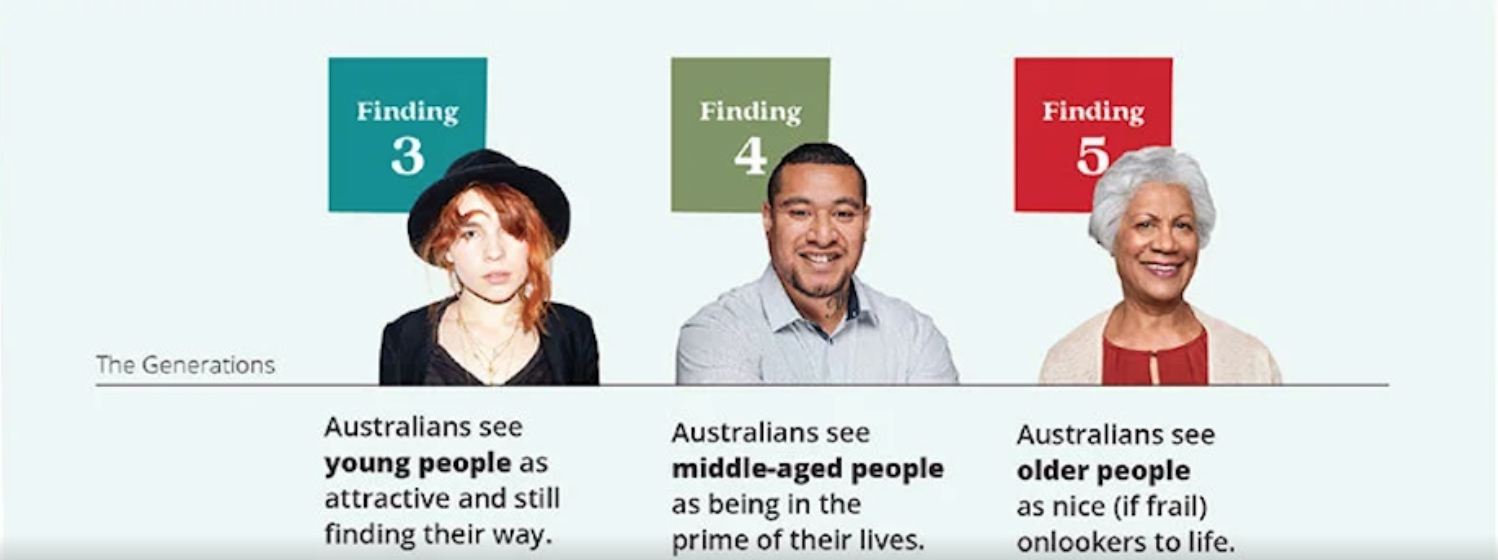
New Ageism report finds intergenerational conflict overblown
Ageism doesn’t just apply to older Australians, according to a new report which urges us all to do something about it.
The weighty Human Rights Commission’s survey called What’s Age Got To Do With It calls for a historic change in attitudes.
It brands ageism as the least understood and most pervasive of all the ‘-isms’ and is a problem that affects all ages.
The HRC’s research says outdated stereotypes and expectations persist, and age isn’t the problem, but ageism is. What do you think?
The report download here is more than 200 pages and only came out last week, so we shall return to mine more helpful information in the future.
One of the findings that leapt out at me will hopefully disarm the ‘phoney war’ stoked up between generations in terms of wealth and housing.
The survey participants of all ages rejected the proposition that anyone age group had more than its fair share of assets or resources.
And 70% did not agree the older generations were leaving our world in a worse state than they found it. And fewer than 20% agreed any age group was a burden either on society or their family.
It’s a global problem. This year, the World Health Organization (WHO) Global Report on Ageism highlights how the issues cause disadvantage and injustice and affect solidarity across generations.
Back to the Australian report, which says that no adult age cohort is immune from its effects. It says: ‘Yet ageism remains an accepted and normalised prejudice, underpinned by powerful stereotypes and assumptions which lead to exclusion, marginalisation and inequality.’
- Young adults are most likely to experience ageism as being condescended to or ignored, particularly at work.
- Middle-aged people are most likely to experience ageism as being turned down for a job.
- Older people are more likely to experience ageism as being ‘helped’ without being asked.
Ageism is linked with poorer health, risk of social isolation, lower quality of life, and more financial insecurity in older Australians. In young adults, ageism was described as a
‘a lack of respect, followed by cognitive, then physical and social assumptions about them.’
While the report is focused on findings about attitudes as opposed to solutions, ageism is about more than feelings. It quotes research as suggesting if those aged over 55 lifted their workforce participation by 3%, it would lead to a $33 billion boost to Australia’s GDP.
Of the findings listed on the graphic, there are two which for me, at least stand out.
Finding six refers to the disruption of traditional life trajectory patterns due to age stereotypes, not just older ones.
The report says: “For Australians, what it means to be a certain age is changing. Increased longevity, changing social mores, cultural factors and economic shifts mean people are realising key milestones (completing an education, establishing a career, finding a partner, buying a home, having children, retiring) at later ages.
Finding eight says while we all have much in common, there are predictable tensions again, mainly due to stereotypes. “While tensions between generations exist, the bonds and empathy between them are stronger.
“Most of these intergenerational conflicts are based on stereotypes held by one generation about another, for example, that young adults are impatient and not good financial managers, and that older people do not care about the environment.”
So what do you think of the analysis? Does it help you understand ageism and how it affects all adults better, or do you just want to hear some solutions?
*The ‘x’ stands for MEA multiplied and MEAx includes local stories to enrich your experience.
FiftyUp Club earns a commission for each member that takes up the offer.
Any information contained in this communication is general advice, it does not take into account your individual circumstances, objectives, financial situation or needs.

